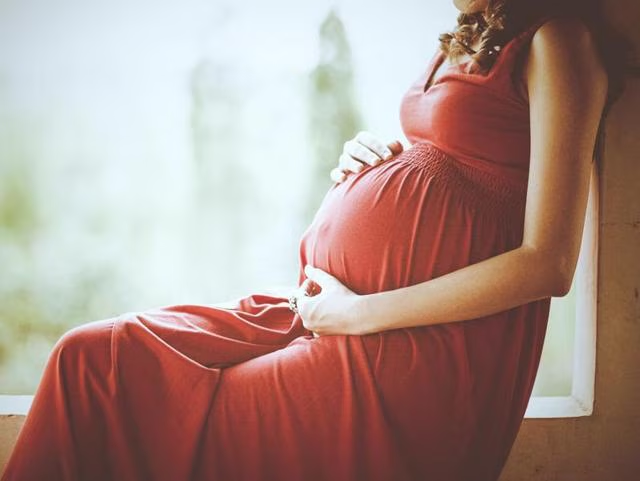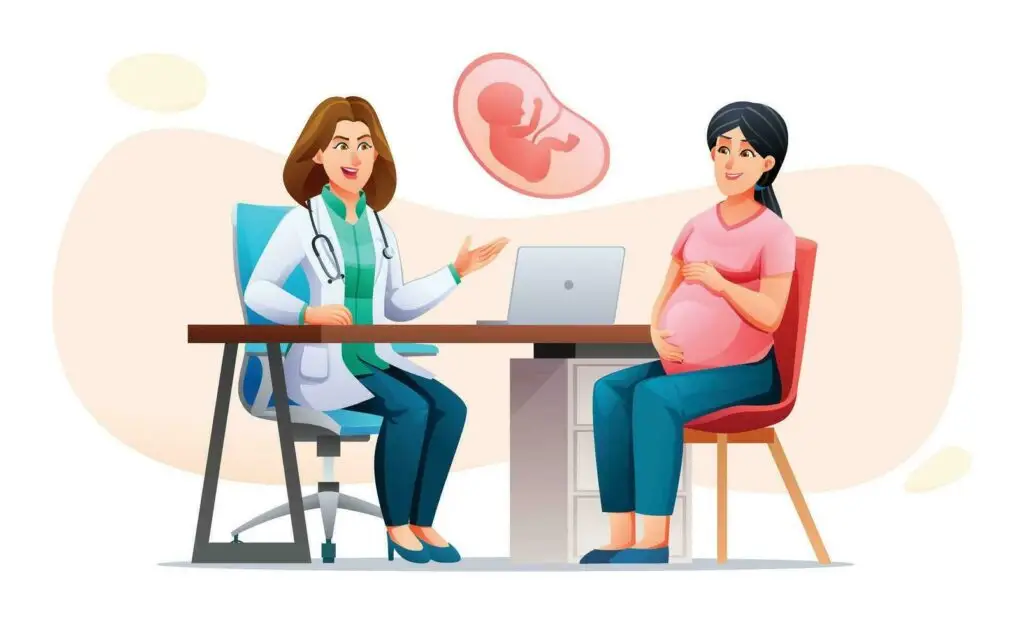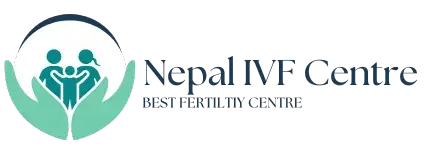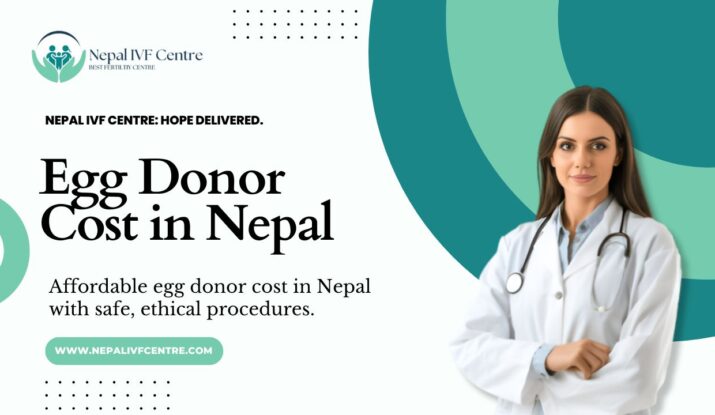When natural conception is not possible, assisted reproductive technologies like Egg Donor and egg donors provide hope to millions of people around the world. Among these options, egg donor has become a widely accepted method for individuals and couples who cannot conceive using their own eggs. In recent years, Nepal has emerged as a popular destination for fertility treatments due to its affordability, growing expertise, and ethical practices.
What is the Egg Donor Cost in Nepal?
This comprehensive guide explores the cost of egg Donor in Nepal, including factors influencing it, the process involved, legal aspects, and tips to make informed decisions. Whether considering egg Donor for the first time or exploring international options, this article will provide clear, practical insights in everyday language.

Understanding Egg Donor
Egg Donor is a medical process in which a woman donates her eggs to help another individual or couple conceive a child. The donated eggs are fertilized with sperm in a laboratory setting using in vitro fertilization (Egg Donor ) techniques, and the resulting embryos are transferred to the uterus of the recipient or a surrogate.
Egg Donor is commonly recommended for:
- Women with low or poor ovarian reserve
- Women who have undergone chemotherapy or radiation
- Older women with age-related fertility decline
- Women with genetic disorders
- LGBTQ+ couples or single men opting for surrogacy
The process requires the donor to undergo hormone stimulation to produce multiple eggs, which are then retrieved and fertilized in the lab.
Why Nepal?
Nepal is gaining popularity in the fertility tourism industry, especially among patients from neighboring countries like India, Bangladesh, and Bhutan, as well as from countries in Europe and North America. Several reasons make Nepal an attractive choice for egg Donor :
- Lower treatment costs compared to Western countries
- Clinics with experienced fertility specialists
- Use of modern Egg Donor laboratories and equipment
- No waiting period for donor eggs
- English-speaking medical staff
- More relaxed regulations on egg Donor compared to some countries
But most importantly, Nepal provides access to donor eggs at an affordable rate without compromising on care and quality.

What is the Egg Donor Cost in Nepal?
The egg donor cost in Nepal generally ranges from $3,000 to $6,500 (approximately NPR 4,00,000 to NPR 8,50,000), depending on a number of variables. This price usually includes:
- Donor screening and compensation
- Egg Donor cycle with donor eggs
- Medications
- Legal and administrative expenses
- Monitoring and follow-ups
While this may still be a significant investment, it is far more affordable than countries like the United States, where egg donor can cost between $20,000 to $40,000 per cycle.
Egg Donor Cost in Nepal
Nepal has become a preferred destination for fertility treatments due to its affordable prices and high-quality services. Among the many assisted reproductive techniques available, egg donor stands out as a popular choice for couples or individuals unable to conceive using their own eggs. While multiple fertility clinics operate across the country, the egg donor cost in Nepal can vary depending on the city, clinic reputation, donor type, and specific medical needs.
In general, the cost of egg donor in Nepal ranges between NPR 400,000 to 850,000, which includes donor compensation, Egg Donor procedure, necessary screenings, legal documentation, and basic medications. However, additional costs may be incurred depending on advanced treatment requirements such as genetic testing, freezing, or specialized medications.
Why Choose Nepal for an Egg Donor?
- Affordable treatment packages compared to Western countries
- Skilled fertility specialists with international experience
- High-quality lab facilities and modern equipment
- Availability of well-screened egg donors with no waiting time
- Friendly environment for both domestic and international patients
| Egg Donor Treatment Type in Nepal | Cost of Egg Donor in Nepal (NPR) | Cost of Egg Donor in Nepal (USD) |
| Standard Egg Donor Cycle | 400,000 – 850,000 | $2,897 – $6,160 |
| Egg Donor with ICSI | Up to 850,000 | Up to $6,160 |
| Egg Donor with IMSI | Up to 900,000 | Up to $6,520 |
| Egg Donor with TESA | Up to 950,00 | Up to $6,890 |
| Egg Donor with PGD (Genetic Testing) | Up to 1,300,000 | Up to $9,420 |
The following table helps you to understand the cost of Egg Donor in different places in Nepal:
| Egg Donor costs in different places in Nepal | Cost of Egg Donor in different places in Nepal (NPR) | Cost of Egg Donor in different places in Nepal (USD) |
| Egg Donor Cost in Pokhara | 400,000 – 850,000 | $2,897 – $6,160 |
| Egg Donor Cost in Kathmandu | 420,000 – 780,000 | $3,045 – $5,655 |
| Egg Donor Cost in Chitwan National Park | 410,000 – 760,000 | $2,972 – $5,507 |
| Egg Donor Cost in Lumbini | 405,000 – 740,000 | $2,935 – $5,370 |
| Egg Donor Cost in Nagarkot | 400,000 – 750,000 | $2,897 – $5,435 |
| Egg Donor Cost in Bhaktapur | 390,000 – 780,000 | $2,827 – $5,655 |
| Egg Donor Cost in Bandipur | 395,000 – 760,000 | $2,860 – $5,507 |
| Egg Donor Cost in Sarangkot | 380,000 – 740,000 | $2,754 – $5,370 |
| Egg Donor Cost in Patan | 400,000 – 770,000 | $2,897 – $5,580 |
| Egg Donor Cost in Kathmandu Durbar Square | 420,000 – 800,000 | $3,045 – $5,800 |

Types of Egg Donors
There are different types of egg donors, and the cost of treatment can change depending on which type is selected.
Anonymous Egg Donors
Most clinics in Nepal provide anonymous donors. These are women who donate their eggs without any personal or direct involvement with the intended parents. Clinics usually match donors based on physical characteristics, ethnicity, education level, or other preferences.
- Cost-effective
- No emotional complications
- Most commonly used option
Known Egg Donors
In this case, the donor is known to the intended parents and may be a friend, relative, or someone personally introduced to the couple.
- Requires mutual agreement and legal contracts
- May carry emotional or ethical considerations
- Sometimes more expensive due to added counseling and screening
Fresh vs. Frozen Egg Donor
Fresh eggs are retrieved and used immediately during the Egg Donor cycle. Frozen eggs are previously collected and preserved through cryopreservation.
- Fresh Donor Eggs: Higher success rates, but require cycle synchronization
- Frozen Donor Eggs: Less expensive, quicker process, slightly lower success rates
Many clinics in Nepal offer both options, depending on availability and the needs of the intended parents.
How Are Donors Screened?
Egg donors in Nepal undergo an extensive screening process, which is included in the overall egg donor cost. The screening process includes:
- Complete medical history review
- Hormone level testing (AMH, FSH, LH)
- Infectious disease screening (HIV, Hepatitis, etc.)
- Genetic testing for hereditary diseases
- Psychological evaluation
- Physical examination
This thorough evaluation ensures that only healthy and mentally sound individuals donate eggs, thus increasing the chance of a successful pregnancy and a healthy baby.
The Egg Donor Process in Nepal
The journey from consultation to embryo transfer generally involves the following steps:
Step 1: Initial Consultation
Meet with the fertility specialist, discuss your medical history, and decide whether egg Donor is suitable for your situation.
Step 2: Donor Matching
Choose between an anonymous or known donor. Clinics usually provide donor profiles to help you make a decision.
Step 3: Legal Formalities
Sign consent forms and legal contracts to protect the rights of all parties.
Step 4: Donor Stimulation and Monitoring
The donor receives hormone injections to stimulate egg production. She is closely monitored with ultrasounds and blood tests.
Step 5: Egg Retrieval
Once the donor’s eggs are mature, they are retrieved through a minor surgical procedure under anesthesia.
Step 6: Fertilization and Embryo Culture
The retrieved eggs are fertilized with the intended father’s sperm (or donor sperm) in the lab.
Step 7: Embryo Transfer
A healthy embryo is transferred into the uterus of the intended mother or a surrogate.
Step 8: Pregnancy Test
A blood test is conducted two weeks after the transfer to confirm pregnancy.

Success Rates of Egg Donor in Nepal
The success of the treatment depends on multiple factors such as the donor’s age and health, the quality of the sperm, and the overall medical condition of the recipient. However, in general, egg Donor has a higher success rate than Egg Donor using the recipient’s own eggs, especially in women over 35.
In Nepal, success rates for egg donor cycles typically range from 55% to 70% per cycle. Some clinics may even report higher success rates depending on their technology and experience.
Why choose the Nepal IVF Centre?
A compassionate service provider like Nepal IVF Centre is an expert in the field of parenthood and supports patients in making their parents’ dreams come true. We, at Nepal IVF Centre, have in place a fully experienced team that works round the clock to custom-create specialized IVF treatment strategies for all patients. We guarantee attentive and sophisticated care to all patients while using specialized technology to maximize success rates.
Our understanding of the IVF emotional journey enables us to actively support you throughout the process. Furthermore, my treatment options include very affordable and quality value statements, making IVF available to more families. Lastly, in our firm belief, the combination of success and comfort along with a welcoming environment makes us the best choice for people planning to start or grow a family.
Final Thoughts
Egg Donor is a powerful option for individuals and couples who want to start or grow their families but face fertility challenges. The egg donor cost in Nepal offers an affordable path to parenthood while maintaining medical safety, ethical standards, and emotional care.
With clear pricing, competent medical professionals, and a growing network of fertility clinics, Nepal is proving to be a reliable destination for egg donors. Whether you’re based locally or abroad, understanding the process and knowing your options can help you take the next confident step toward achieving your dream of parenthood.
If you’re considering an egg Donor, consult with multiple clinics, ask detailed questions, and ensure you fully understand both the medical and legal aspects involved. A little planning and the right support can make all the difference in your journey.
FAQs (Frequently Asked Questions)
1. u003cstrongu003eCan I choose specific traits for the egg donor?u003c/strongu003e
Yes, clinics usually allow you to select donors based on ethnicity, height, education level, or other preferences, especially if using an anonymous donor.
2. u003cstrongu003eWill the donor have legal rights over the child?u003c/strongu003e
No, legal contracts ensure that donors have no parental rights or responsibilities.
3. u003cstrongu003eIs egg donation painful for the donor?u003c/strongu003e
The egg retrieval process is minor and done under sedation. Some donors may experience mild cramping or discomfort for a day or two.
4. u003cstrongu003eHow long does the whole process take?u003c/strongu003e
From consultation to embryo transfer, the process usually takes 4 to 6 weeks.
5. u003cstrongu003eCan international patients access egg donor services in Nepal?u003c/strongu003e
Yes, many clinics in Nepal provide services to international patients with complete support for travel, accommodation, and legal documentation.

